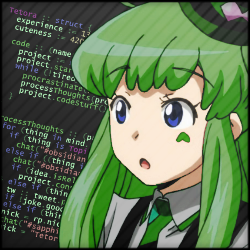A lot of contributors of FOSS projects make small changes that aren’t copyrightable.
copygirl
Just a dorky trans woman on the internet.
My other presences on the fediverse:
• @copygirl@fedi.anarchy.moe
• @copygirl@vt.social
- 0 Posts
- 6 Comments

 41·3 months ago
41·3 months agoCould you please provide some sources for that? I’d like to know more.
First of all though, there is no such thing as a “hostile fork”. Being able to fork a project, for any reason, is the entire point of open source. And to be fair, not wanting to continue working for a for-profit company for free is a very good reason.
And yeah, when you suddenly turn a FOSS project that’s been developed with the help of a bunch of contributors, into a for-profit company, without making a big fuss about it beforehand and allow the contributors and community to weigh in, then yeah, that’s a hostile takeover of sorts, at least in my opinion. Developers gotta make money, but they could’ve done that by creating a new brand instead of taking over that of a previously completely FOSS project. Forgejo is preventing that exact thing from happening by joining Codeberg (a non-profit).

 1385·3 months ago
1385·3 months agoThere’s been a hostile takeover at Gitea and it’s now run / owned by a for-profit company. The developers forked the project under the name Forgejo and are continuing the work under a non-profit. See also: Their introduction post and a page comparing the two projects. Feel free to look up more, since I haven’t familiarized myself with the incident all that much myself. Either way though, maybe consider using Forgejo instead of Gitea.
- There is the
--download-sectionsoption. Looking at it, you might want to use--download-sections "*0:00-1:00". - I briefly checked with
--list-thumbnailsand it doesn’t look like YouTube offers any square ones, so I would look into using ImageMagick to edit the image with a command. I doubt yt-dlp allows you to do any sort of image manipulation out of the box.
- There is the

 2·1 year ago
2·1 year agoThere used to be this service called Flattr, and it’s still around, but I’m honestly not sure how it works anymore. The way it used to work is you set a monthly amount you’re willing to contribute, you get to specify which projects to support, either one time, or recurring, and then your contribution is split up between the projects you chose to support.
I don’t know if this is an ideal system, because some creators might end up staying unsupported even though people are using their creations, others end up reminding their audience constantly to use the service and support them, so they end up with more than a similar creator not reminding their audience.
In the end, I think the best thing for all creators would would be universal basic income. Everyone is taken care of such they can survive and pay for necessities, and then they can just create stuff for others to enjoy, for free. (Oh, the humanity!) No trying to convince people to share part of their hard-earned money just for basic survival.
Then you should also override
Equals(object),GetHashCode, and implementIEquatable<T>.Thankfully a lot of the usual boilerplate code can be avoided using a
recordclass or struct: